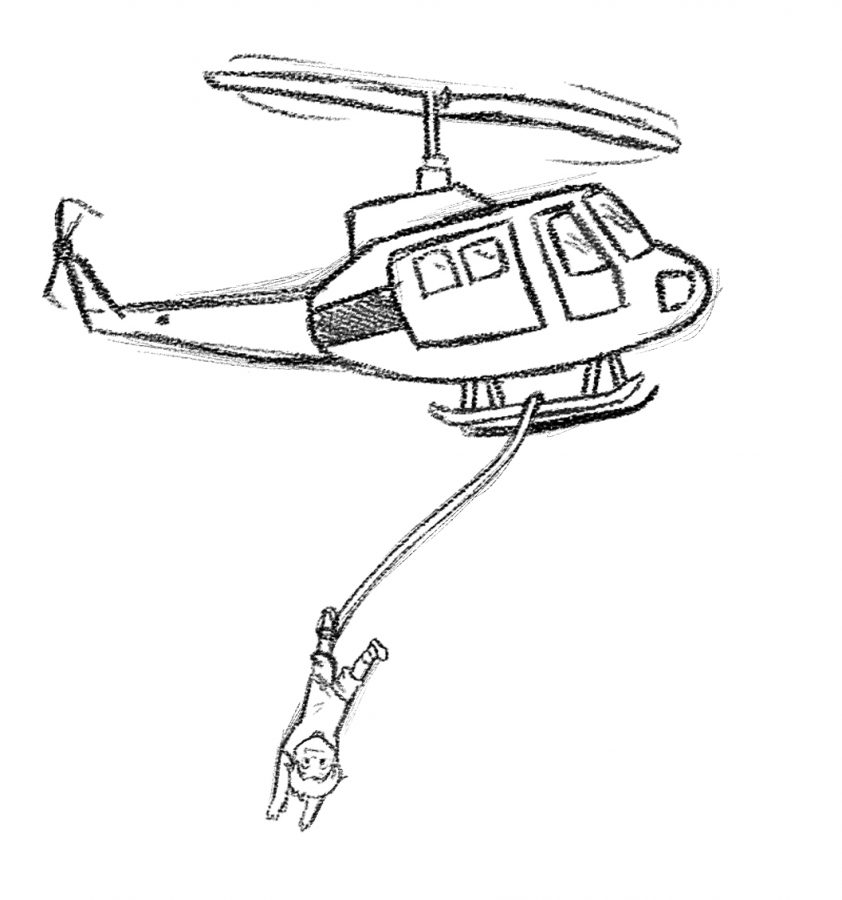Dear Parents, Stop Raising Your Kid as an American
March 26, 2018
Hey Americans, have you seen how successful German students are, or French ones? How about Chinese prodigies? Raise your kids like them. The books say it’s better.
Everyday we seem to grow more anxious over GPAs, college applications, the kryptonite of teenage happiness. We’re pretty desperate, students and parents alike, so should we be looking at other countries for how to do it better? Books like Achtung Baby: An American Mom on the German Art of Raising Self-Reliant Children (Zaske) and Bring Up Bebe: One American Mother Discovers the Wisdom of French Parenting (Druckerman) are teaching parents how to take other cultures’ parenting styles and apply them to their own children. Possibly the most extreme of them all, the stereotypical Chinese mother. In Amy Chua’s Tiger Mom, there are Chinese Moms and Western Moms. She does not hesitate to call Western Moms losers. When she says Chinese she means the strict, authoritative, helicopter (or rather fighting jet) type of parents, and Western are the loose, “good job getting a C” type of parents. Chua goes to the extreme, making her children practice playing their instrument for three to five hours a day, insisting they’re first in everything possible, she even considers calling her children “garbage” a highly effective parenting technique that she got from her father. As chilling as this all sounds, in all fairness, her children are successful.
American parents are notorious for helicoptering their kids, that is, they hover over them and anxiously watch their every move, but just like a helicopter they can only hover and never actually help. Clearly this isn’t the way to get German self-reliant, French behaved, and Chinese successful kids. But with these principles, the problems follow.
It’s not uncommon for a German day care to have a toy-free month. They won’t directly tell their kids to not be creative, but there’s definitely strict rules and guidelines that must be followed when it comes to creative anarchy. They may be self-reliant but they would crumble without a system to lean back on. Their teenagers are allowed into dance clubs and bars, but they must leave by 10 p.m. if they’re under 16, and midnight if they’re under 18. Sounds like the perfect solution to America’s binge drinking epidemic.
The French often have children that are far more well behaved and less sensitive than American children, but that’s not to say that there’s a lack of rebellion. Because they’re so much more focused on culture over strict education (not to say the French aren’t educated). They see that rebellious attitude arise in a mid-life crisis rather than in the teenage years.
We’ve all heard of the stereotypical Chinese parent. Not allowing their child less than an A on their report card, insisting that they be the best of the best. But micromanaging a child’s life leads to heavy reliance on a stable system and hesitation when they’re asked to make their own choices. Calling your child garbage will cause suppressed emotional trauma and lead to a power hungry adult, it’s morally disgraceful even if it makes you’re student top of their class.
From a student perspective, “helicopter” parents can be a key tool in academic success, but can take away the fun, bad decision making, side of teenage life.
Tim Goldsmith’s (10) family values academics and pushes him to be the best that he can be. His parents have two very different parenting styles,
“My mom, she isn’t quite a helicopter, but she likes to be involved. My dad is more hands off, he tells us what he expects and we do that to the best of our ability.” He admits that he doesn’t always have the best judgement, and although he doesn’t always like his parents’ decisions, in the long run it’s for the best. They focus a lot on his academics, and even though he excels he knows it’s not the definition of success,
“My grades are important to me, but I understand that people can be successful in other ways than just grades or education. It’s more what you get out of it than how you perform.”
Eledon Beyene’s (11) parents prioritize school for a very different reason,
“We’re [in America] mostly for my education and that completely fluctuates the priorities I should have in life. They believe that my academics should always come first, that does put a little bit of a burden on me, seeing I can’t have a life like most my peers do, but it also keeps me on track.” Her and her family come from Ethiopia where the culture around parenting is very different from America’s.
“[My parents are] disciplinary, and a bit authoritative, it also has to do a lot with the culture. In Ethiopian culture, you’re supposed to have a lot of respect to your parents. Even as an adult, what they say should and will often times hold weight in the decision making process in your life.”
Beyene understands the importance of academics and formal education. She makes it a priority in her life to reach her personal goals and fulfill her personal definition of success. But when it comes to how the school views success, she has very unique views,
“I don’t [know my class rank], I don’t really think it’s right for students to be ranked based on their grades. It’s exploitation of effort towards their academics.”
From culture to culture, and person to person, how to be successful varies in a huge way. So no, maybe you shouldn’t force your child to be a German-French-Chinese hybrid prodigy, but it never hurts to look at the principles that other cultures have high respect for.








